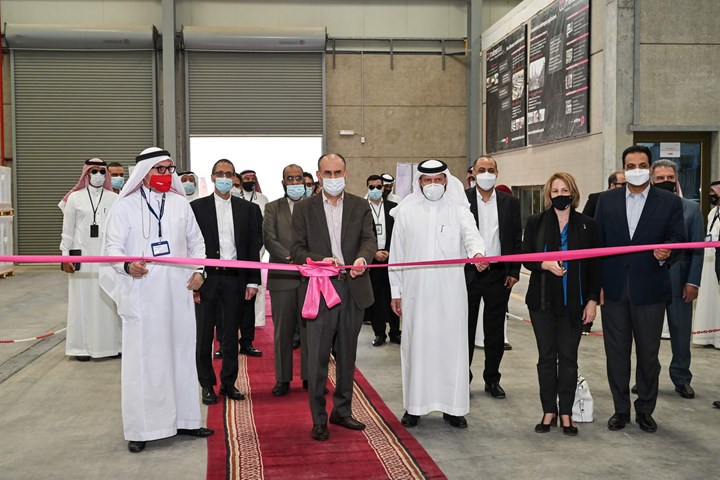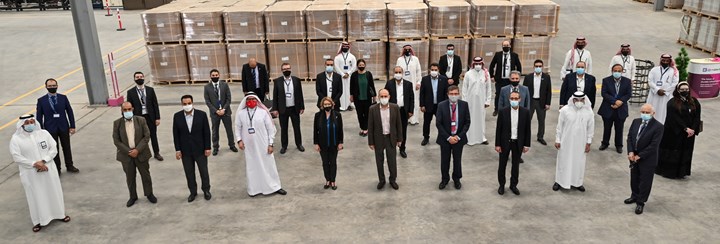Saudi Aramco inaugurates first GFRP rebar production facility
A joint venture between Pultron and IKK now has a dedicated facility, IKK Mateenbar, to manufacture and supply corrosion-free fiberglass rebar for infrastructure projects in Saudia Arabia, the Middle East and North Africa.
Saudi Aramco’s (Dhahran, Saudi Arabia) senior vice president of technical services, Ahmad Al-Sa’adi, recently inaugurated the first fiberglass rebar facility in Saudi Arabia, IKK Mateenbar. The facility was established under a memorandum of understanding signed in 2019 by Pultron Composites (Gisborne, New Zealand), and its partner, Isam Khairy Kabbani Group (IKK, Jeddah, Saudi Arabia), with Saudi Aramco. The inauguration ceremony was held on June 23, 2021 in the presence of the New Zealand Embassy’s Chargée D'affaires, Ms. Louise Searle and the chairman of the National Industrial Committee of the Council of Saudi Chambers, Ibrahim bin Mohammed Al-Sheikh.
The launch of this facility comes as part of Saudi Arabia’s efforts to attract and localize the rebar industry. According to Saudi Aramco, this is also in line with efforts to achieve the objectives of the Saudi Vision 2030, in terms of diversifying the national economy, promoting innovation and strengthening Saudi Arabia’s international relations.
Speaking at the inauguration ceremony, Al-Sa’adi explained, “The use of non-metallic, advanced polymer materials has significant potential in multiple sectors. Moreover, technologies such as GFRP rebar, which mitigate corrosion and minimize life cycle cost, have potential to be the real game-changers for the building and construction sector in particular.”
IKK Mateenbar will manufacture and supply corrosion-free fiberglass rebar for infrastructure projects in Saudia Arabia, as well as the Middle East and North Africa regions.
Saudi Aramco recently mandated the use of GFRP rebar in its engineering standards for reinforced concrete structures in highly corrosive environments, enabling designers to replace steel rebar in these high-risk areas. Extreme temperatures and high levels of salinity make Saudi Arabia one of the most corrosive environments for steel rebar, causing early structural damage, resulting in the nation’s economy incurring high costs to replace and maintain unstable concrete infrastructure.
Saudi Aramco notes that it was the first to deploy IKK Mateenbar in the construction of its 23-kilometer-long and 80-meter-wide Jizan Flood Mitigation Channel, which is the largest GFRP rebar project in the world (see “Composite rebar for future infrastructure” for more on this project).
Related Content
-
Recycling end-of-life composite parts: New methods, markets
From infrastructure solutions to consumer products, Polish recycler Anmet and Netherlands-based researchers are developing new methods for repurposing wind turbine blades and other composite parts.
-
Natural fiber composites: Growing to fit sustainability needs
Led by global and industry-wide sustainability goals, commercial interest in flax and hemp fiber-reinforced composites grows into higher-performance, higher-volume applications.
-
TU Munich develops cuboidal conformable tanks using carbon fiber composites for increased hydrogen storage
Flat tank enabling standard platform for BEV and FCEV uses thermoplastic and thermoset composites, overwrapped skeleton design in pursuit of 25% more H2 storage.


















